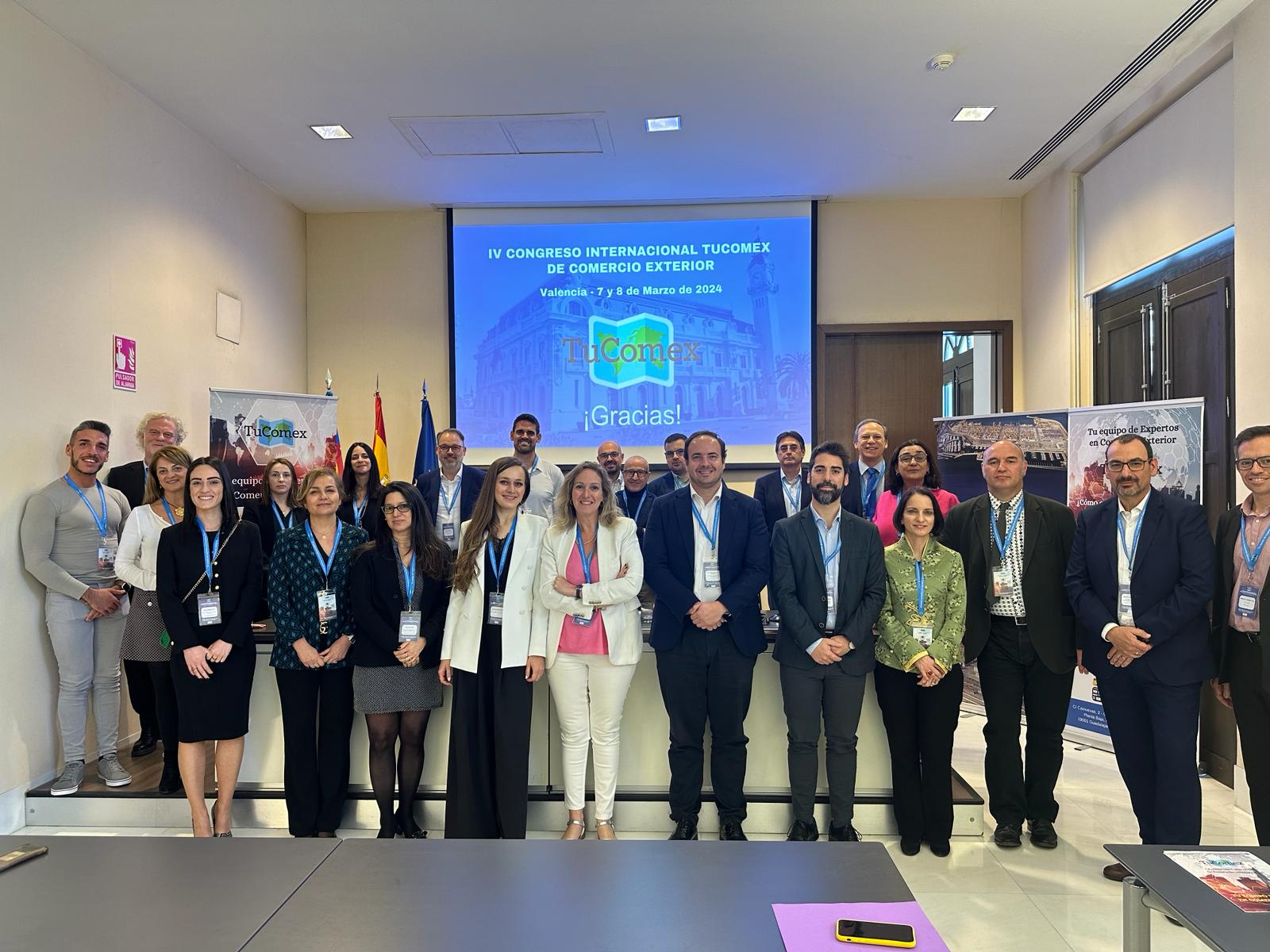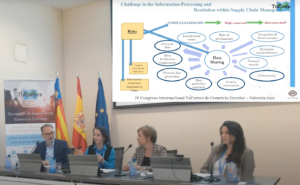March 7-8, 2024
The IV International TUCOMEX Congress on Foreign Trade, held in Valencia, Spain, on March 7th and 8th, 2024, brought together industry leaders, experts, and local authorities to delve into the ongoing technological revolution transforming international supply chains.
The event kicked off with a networking dinner on Thursday, March 7th, followed by a day of in-depth discussions on Friday. Authorities, representatives from the Port of Valencia, and industry leaders shared their experiences with automation and digital transformation, highlighting both the challenges and opportunities these advancements present.
Presentations by distinguished speakers like Mike Pagenda (Managing Director of TuComex), Mireia Paulo (Head of Management at CEAC, Arbitrator at SHIAC), Tom Van der Heyden (CEO of S3 Group), Natalia del Olmo (Attorney at Studio Tossato), and Carmen Calvo (Consultant Solicitor at Cognitive Law) underscored the potential of new technologies to improve business model efficiency and necessitate a reevaluation of traditional supply chain methods.
Speakers emphasized the growing importance of user-friendly and secure “smart supply chains” that integrate all stakeholders, including end users. These new models leverage data processing to streamline operations, requiring collaboration between companies and public administrations. However, the path to Supply Chain 4.0 is not without obstacles.
Key challenges identified include:
- A lack of specialized human capital to manage and utilize these new technologies effectively.
- Limitations faced by small and medium-sized enterprises (SMEs) in implementing automation strategies due to resource constraints.
- The need for improvements in transportation infrastructure and customs procedures to support efficient data flow.
Data, a cornerstone of Supply Chain 4.0, presents its own set of concerns. Companies grapple with the security and privacy implications of sharing and storing data that directly affects trade and business operations. Additionally, geopolitical tensions, global health crises, and national security considerations add layers of complexity. Digital supply chains operating across borders must navigate diverse legal systems and cultural environments, highlighting the challenge of ensuring compliance across various jurisdictions.
Mireia Paulo’s presentation on “Opportunities and Risks in Supply Chain Practice in China Under the Technological Revolution” offered valuable insights. She delved into the changing landscape of smart supply chain management in China, outlining relevant guidelines, standards, and real-world case studies. Notably, her presentation highlighted the critical role of data processing within supply chain management and the challenges associated with cross-border data flows. Strategies for mitigating potential risks were also discussed.
By fostering a space for dialogue and knowledge exchange, the IV International TUCOMEX Congress provided a valuable platform for participants to navigate the complexities of the digital revolution and explore its potential to reshape international supply chain operations.
About the event:
- Programme: website

